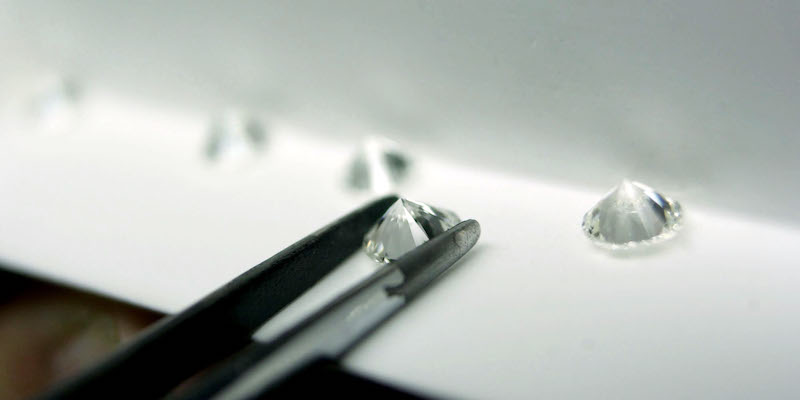There is a sector of the Russian economy that has not been involved in international sanctions: the limitation on the export of rough and finished diamonds was not even included in the tenth package approved by the European Union on Friday. The G7, the body that brings together the richest democracies in the world, also announced on Friday that measures on diamonds will be taken in the future, but in a vague way and without giving time limits.
Europe and the West have long ago reduced imports of oil and gas from Russia, on which they depended heavily in some cases, and have blocked imports of less fundamental goods such as gold, caviar and vodka, but they are unable to find an agreement and define a common line on diamonds. It is not a negligible economic sector: Russia exports rough diamonds every year for almost 4 billion euros. It is the first exporter in the world and diamonds are among the top five products that generate the most income in the country: only oil and gas weigh much more in the balance of exports.
However, the block on the purchase of diamonds by the European Union meets strong resistance from Belgium and in particular from the AWDC, the World Diamond Center in Antwerp. From the Belgian city they pass 86 percent of all rough diamonds in the world, 50 percent of those worked and 40 percent of those industrial. Before the Russian invasion of Ukraine, 30 percent of the diamonds that passed through the Belgian city came from Russia. Today those percentages have dropped slightly, but the purchase of Russian products hasn’t stopped.
The diamond district of Antwerp has been active since the fifteenth century, in about one square kilometer there are 1,700 companies and 4,500 jewelers, with an estimated turnover of 38 billion euros per year, according to AWDC data. In 2021 it imported diamonds from Russia for 1.8 billion euros, in the first 8 months of 2022 for 1.2 billion.
A jewelry store in Antwerp (Paul O’Driscoll/Getty Images)
In Russia, the extraction and export of diamonds is managed by the Alrosa company, the second largest in the world after the South African De Beers: it is owned by a state-owned Siberian company. Russia and the republic of Yakutia (northern Siberia) own 66 per cent, the managing director is Sergei Sergeevich Ivanov. He is an oligarch belonging to the first group of those sanctioned by the United States after the invasion of Ukraine, and the son of Sergei Borisovich Ivanov, former defense minister and longtime ally of Vladimir Putin.
The Belgian opposition to the blockade of imports is justified for reasons of a different nature. The former are purely economic: the district of Antwerp argues that the measure would damage Belgium more than Russia, with a 30 percent cut in turnover and 10,000 jobs in related industries. The second are linked to the nature of the trade: diamond imports are not as complex as those of gas or oil, they do not need infrastructures that are not easily replaceable. According to Belgium’s thesis, if the EU stopped importing diamonds, they would be immediately sold to India, Israel or the United Arab Emirates, which would also replace Antwerp in the long term as the first center of global diamond traffic.
A blockade would then favor the black market, made easier by the fact that one hundred million euros of diamonds can be contained in a single suitcase.
For this reason, the Belgian government has pushed for the block on imports to come only after the definition of a safe path for the traceability of Russian diamonds, which are blocked worldwide: the discussions were therefore postponed to the G7. The seven member countries (Italy, France, Germany, United Kingdom, United States, Canada and Japan) in the final document they pledged, “given the significant profits that Russia obtains from the export of diamonds, to work collectively for further measures regarding Russian products, both raw and processed, with the collaboration of key economic partners”.
But safely tracing diamonds is a very complex operation that lends itself to being circumvented, especially in countries that have not embraced Russia’s sanctions. Great Britain and the United States have long since included Alrosa among the sanctioned companies and have blocked imports of diamonds from Russia: neither of the two countries, however, bought them in quantities comparable to those of Antwerp. The United States also does not consider rough diamonds originating from Russia but processed elsewhere as Russian, based on a 1940 law then governing imports of products from Japan. Moreover, Europe and North America represent the final destination of 70 percent of the world diamond market.
Ukrainian President Volodymyr Zelensky in a message to the Belgian Parliament of last March he had asked the country to stop imports: “Peace is more important than diamonds in the shops”. Belgian Prime Minister Alexander De Croo then denied that the country had ever opposed measures decided by the European Union on the issue.
